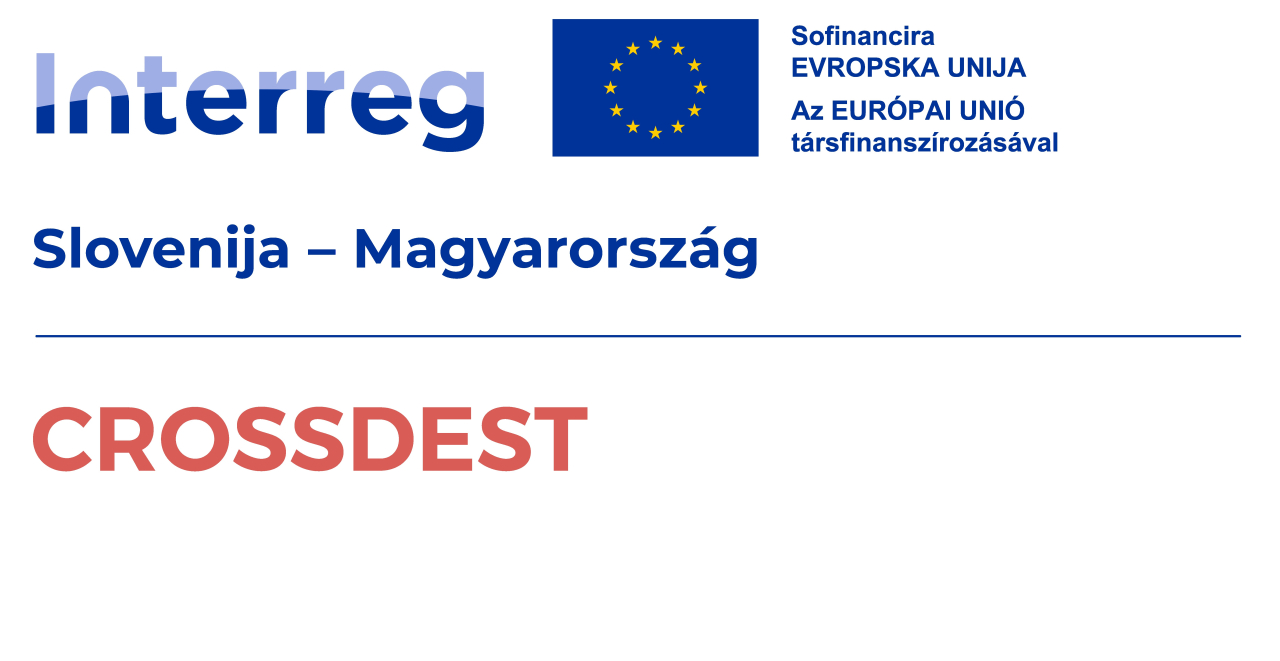

How does I-DEST support obtaining international sustainability certification?
The I-DEST platform provides tourism destinations with a practical, measurable, and modular toolkit based on the international criteria set by the Global Sustainable Tourism Council (GSTC) and aligned with the United Nations Sustainable Development Goals (SDGs).
The platform’s toolkit—including the Standard Destination Kit (SDK), the internal monitoring system, and the service provider module—not only enables structured data collection and benchmarking but also supports SDG-compatible communication and preparation for third-party certification.
Below, we present how I-DEST can assist a destination in achieving GSTC-based sustainable tourism certification, using the Green Destinations standards as a framework.

Within the six thematic areas of the Green Destinations certification, the use of I-DEST can fully or partially contribute to meeting the requirements of 24 criteria, particularly through the following functions:
-
Standard Destination Kit (SDK): self-assessment tools, templates, checklists, and implementation guides
-
Internal Monitoring System: data collection and analysis structured around the four GSTC pillars (governance, economy, society, and environment)
-
Service Provider Module: sustainability badge system and benchmarking
-
Visitor Module: behavioural tips and gamified sustainability challenges
-
SDG-based search and visual reporting
The Green Destinations and GSTC criteria are substantively aligned: the GD system is built upon and interprets the GSTC Destination Criteria v2.0. Accordingly, applying I-DEST supports both internal compliance with GSTC standards and external readiness for Green Destinations certification.
Destination management
1.10 – Monitoring of Visitors
The I-DEST visitor module enables the collection of data on visitor activities, habits, timing, and value preferences. Through the carbon footprint calculator, thematic SDG filters, and gamified challenges related to mobility and food choices, data can be gathered and systematised in real time.
Related GSTC criterion: A6 (Visitor engagement and feedback)
1.11 – Measuring Visitor Satisfaction
Visitor surveys and feedback tools can be integrated into the I-DEST system. Evaluations can be analysed through an SDG perspective (e.g., equal opportunities, green mobility), and displayed in aggregated form via the DMO dashboard.
Related GSTC criterion: A6 (Visitor engagement and feedback)
1.14 – Visitor Behaviour at Sensitive Sites
The I-DEST audioguide system and QR-code-based content platforms make it possible to communicate codes of conduct for visitors at culturally or environmentally sensitive sites.
Related GSTC criteria: D2 (Visitor management at natural sites), C6 (Visitor management at cultural sites)
1.15 – Sustainability Indicators and Monitoring
The I-DEST internal monitoring system includes standardised indicators based on the four pillars of GSTC (governance, economic, social, environmental impacts). It integrates data collected from service providers, visitors, and the destination management organisation (DMO).
Related GSTC criterion: A3 (Monitoring and reporting)

Nature and Scenery
2.2 – Monitoring the Environmental Impacts of Tourism on Nature
Through service provider self-assessments and SDG-based evaluations, nature conservation aspects can be recorded—such as measures related to protected areas, waste management practices, or the implementation of nature-friendly programmes. Gamified visitor challenges (e.g., avoiding single-use plastics) also contribute to the protection of sensitive ecosystems.
Related GSTC criteria: D1 (Protection of sensitive environments), D2 (Visitor management at natural sites)

Social Well-Being
5.6 – Accessible Infrastructure and Services
Based on I-DEST’s accessibility questionnaire and badge system, visitors can filter service providers that meet specific accessibility criteria—such as physical, visual, auditory, neurodiverse, or family-friendly access requirements.
Related GSTC criterion: B8 (Access for all)
5.10 – Resident Satisfaction
I-DEST enables the collection and evaluation of resident feedback, including perceptions of tourism’s local impacts. These results can be incorporated into destination-level sustainability assessments.
Related GSTC criterion: A5 (Resident engagement and feedback)
5.11 – Measuring Economic Impacts
The system collects self-reported data from service providers on turnover, visitor numbers, and employment, as well as spending patterns gathered from visitor questionnaires.
Related GSTC criterion: B1 (Measuring the economic contribution of tourism)
5.12 – Supporting Local Entrepreneurs
I-DEST allows local producers, artisans, and businesses to be highlighted through SDG-based filters, enabling destinations to actively promote the local economy through tourism.
Related GSTC criterion: B3 (Supporting local entrepreneurs and fair trade)

Business and Communication
6.1 – Promoting Sustainability Among Service Providers
I-DEST enables service providers to carry out self-assessments based on GSTC-aligned sustainability criteria, helping them to improve their operations and sustainability practices.
Related GSTC criterion: A4 (Enterprise engagement and sustainability standards)
6.2 – Adoption of Sustainability Standards
The system supports service providers in preparing for GSTC-recognised certification schemes (e.g. Good Travel Seal) and visually represents their progress through sustainability badges.
Related GSTC criterion: A4
6.10–6.12 – Accurate, Value-Based Communication and Interpretation
On both web and mobile interfaces, SDG-based filters and tags help visitors find programmes and services that match their personal sustainability values. The platform’s audioguide and mapping features also serve interpretive purposes, enhancing understanding of cultural and natural heritage.
Related GSTC criteria: A7 (Promotion and information), C7 (Site interpretation)

Environment and Climate Protection
3.5 – Water Conservation
Through the I-DEST service provider self-assessment module, actions taken to reduce water consumption can be documented—such as greywater reuse, installation of water-saving devices, and visitor education.
Related GSTC criterion: D6 (Water stewardship)
3.6 – Water Quality Monitoring and Response
I-DEST monitors and reports water use patterns and conservation practices among service providers, at the settlement and county levels. This supports the development of transparent and targeted water management policies by offering aggregated, comparable data.
Related GSTC criterion: D7 (Water quality)
3.8 – Reduction of Solid Waste
During I-DEST service provider audits, measures to reduce solid waste can be tracked (e.g. use of reusable items, composting). Guests are also encouraged to engage in waste-reduction challenges through the platform’s gamification system.
Related GSTC criterion: D9 (Solid waste)
3.9 – Waste Separation and Recycling
Service providers can declare their waste separation practices, including the number of waste streams (e.g. four or more categories). This data can be displayed visually on the destination dashboard to inform stakeholders and visitors.
Related GSTC criterion: D9

3.12 – Reduction of Greenhouse Gas (GHG) Emissions
The I-DEST sustainability platform enables the tracking and feedback of performance related to resource and energy efficiency (e.g. use of renewable energy, application of digital tools, reduction of paper consumption).
Service providers can see how their performance compares to others, based on their own data.
DMOs have access to aggregated results at the service provider and municipal level, offering insights into the tourism sector’s sustainability progress and emissions reduction efforts.
Related GSTC criterion: D10 (GHG emissions and climate change mitigation)
3.13 – Reducing Transport Emissions
Visitors can be encouraged to use low-emission transport modes (e.g. public transport, cycling). Some gamified commitments are built around this principle, such as “I only use public transport during my stay.”
Related GSTC criterion: D11 (Low-impact transportation)
3.14 – Promoting Eco-Friendly Transport
The interactive map in I-DEST highlights bike-friendly routes and charging stations for low-emission vehicles. These transport-related services can also be filtered through the SDG-based search function.
Related GSTC criterion: D11
3.17 – Renewable Energy
Service providers can report their use of renewable energy, which is then represented through visual badges on their profiles. DMOs can highlight these providers as best practice examples.
Related GSTC criterion: D5 (Energy conservation)
3.18 – Carbon Offsetting
Visitors can be informed about concrete offsetting options through the I-DEST platform, which supports the visibility and accessibility of certified carbon compensation initiatives.
Related GSTC criterion: D10 (GHG emissions and climate change mitigation)

More Pages
-
4 Mins

Read -
1 Mins

Read -
1 Mins
Read -
1 Mins

Read -
3 Mins

Read -
3 Mins

Read -
3 Mins

Read -
4 Mins

Read -
3 Mins

Read -
2 Mins
Read -
3 Mins

Read -
4 Mins

Read -
3 Mins

Read -
4 Mins

Read -
9 Mins

Read -
3 Mins

Read -
4 Mins

Read -
3 Mins

Read -
3 Mins

Read -
5 Mins

Read -
1 Mins

Read -
2 Mins

Read -
2 Mins

Read -
7 Mins

Read -
1 Mins

Read -
3 Mins

Read


